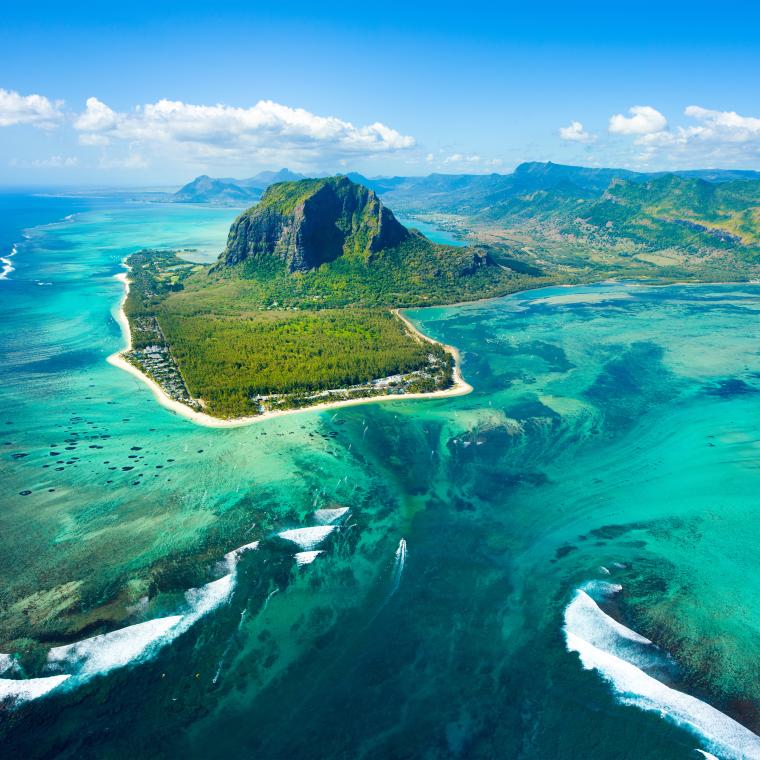
With profound historical and cultural ties, India and Mauritius share a relationship that has significant economic value. Business Development Director for the Africa region, John Félicité explores this bountiful relationship and how it can help bridge the gap between the Asian and African markets.
Mauritius, a tiny sovereign island in the middle of the Indian Ocean, is distant from India by more than 5,000 kilometres. Yet, in spite of the physical distance separating them, these two countries have in common a rare historical, cultural and even economic proximity that only few outsiders would suspect.
A relationship embedded in history
The history of the Mauritius-India connection dates back to the period between the 1830s and 1920s; a period which saw nearly half a million Indians set foot in Mauritius as indentured labourers. Today, Mauritians of Indian origin account for nearly 70% of the island’s population. On the political front, when Mauritius gained independence from the United Kingdom in 1968, the newly formed government under the leadership of Sir Seewoosagur Ramgoolam, the island’s first Prime Minister, decided to give centrality to India in the country’s foreign policy. This has remained a constant ever since.
Catalysing Mauritian growth
Based on historical ties of kinship and cultural heritage, the strength of the Mauritius-India relationship is also apparent in the number and spectrum of bilateral agreements signed. To name but a few, the focus of these agreements range from maritime security, biotechnology and environment to infrastructure, energy, ICT and, more recently, the blue economy.
Over the years, India has granted funds to Mauritius for its development and provided lines of credit at very low interest rates. These have been very beneficial, especially during the difficult times Mauritius went through in its development history. In 2016, for instance, after the amendment of the tax treaty, a Memorandum of Understanding was signed between the two countries whereby India would provide a grant to Mauritius of MUR12.7bn for the development of multiple projects. Considered crucial in shaping the modern face of Mauritius, these projects encompass various sectors of the economy such as public transportation, education, health care, social housing and the judiciary.
Announced on the sideline of the visit to India by Prime Minister Pravind Jugnauth in January this year, a Comprehensive Economic Cooperation and Partnership Agreement (CECPA) between the two nations is about to be concluded, with the aim of giving a renewed impetus to the two countries’ long-lasting economic collaboration. In a business interaction organised during his visit by the Confederation of Indian Industry, Jugnauth said that the discussions in preparation of the CECPA had been guided, amongst other considerations, by the role that Mauritius can play as a platform for India to penetrate the African continent.
India and Mauritius also enjoy close trade links, with India’s exports to Mauritius touching around $1bn a year and comprising mainly petroleum products. Indians also constitute a growing and lucrative tourism market for Mauritius, currently accounting for yearly arrivals in excess of 85,000. A number of Indian public enterprises are also present in Mauritius, such as Indianoil, Mahanagar Telephone and State Bank of India. Additionally, there are over 40 Indian private sector joint ventures registered in Mauritius.
Until recently, the island was the main source of foreign investment into India due to the tax treaty signed in 1982 that exempted a Mauritius resident from paying taxes on capital gains arising from the transfer of Indian shares. As an example, Mauritius accounted for as much as 34% of all foreign direct investments into India between 2000 and 2015. Despite the revision of the treaty in 2016, Mauritius remains an important contributor of inbound investments into India, currently taking second place behind Singapore.
As of June 2018, India, on its part, had routed stocks of investments amounting to USD21bn through Mauritius, making it one of the top countries using the Mauritius International Financial Centre to perform global investments. India has also been investing in Mauritius. Between 2016 and 2018, India committed around US$28mn worth of investments to the Mauritian domestic economy.
Bridging Africa and Asia
On the back of the strong and intrinsic bond between the two countries, Mauritius offers Indian investors and companies a safe anchorage to manage their Africa operations. Given that Mauritius has positioned itself as a hub bridging Asia and Africa, it offers promising prospects of triangular cooperation between India, Mauritius and African countries. As a multilingual country, Mauritius has the advantage of acting as a facilitator for Indian companies, especially with respect to Francophone countries, thereby offering immense possibilities.
As the much-awaited CECPA between India and Mauritius confirms the role Mauritius can play in facilitating India’s access to Africa, Mauritius is poised to contribute significantly to routing Indian investments on the African continent; a recollection of the days when Mauritius was the top investor in India and yet another testimony to the exceptional relationship between India and the far-off “little India”.
For over a decade now, Ocorian has helped companies and funds make the most of business opportunities in the emerging markets of Africa and Asia. By providing sound structuring and on-going administrative support, we help you to grow your business and enhance your enterprise and investor value. Click here to view our service offering from Mauritius.
Related Items
View all
